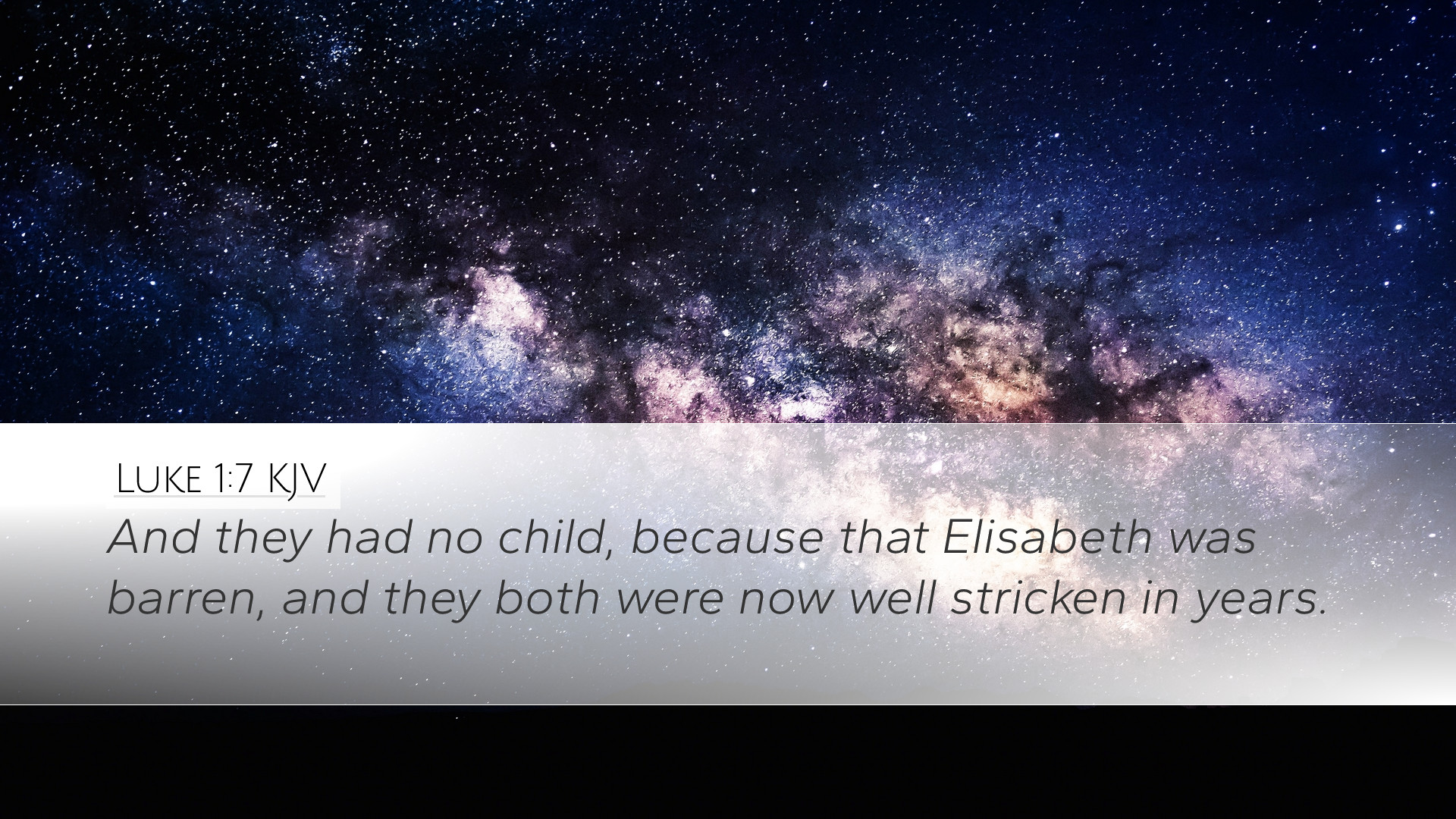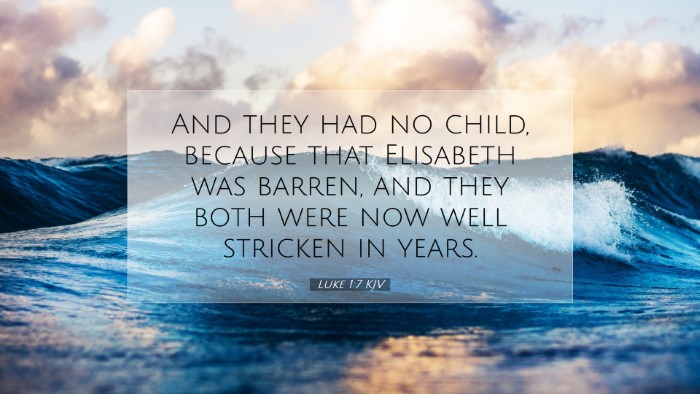Commentary on Luke 1:7
Verse: "And they had no child, because that Elizabeth was barren, and they both were now well stricken in years."
Contextual Overview
This verse introduces the story of Zechariah and Elizabeth, who are significant figures in the Gospel of Luke and the broader narrative of the New Testament. Their situation is emblematic of Old Testament stories of barrenness, drawing parallels with the narratives of Abraham and Sarah, Hannah, and others.
Key Insights from Public Domain Commentaries
Matthew Henry's Commentary
Matthew Henry emphasizes the plight of Zechariah and Elizabeth as part of a larger narrative concerning God’s faithfulness and the preparation for the coming Messiah. He notes:
- Barrenness as a Test of Faith: Elizabeth's barrenness is viewed as a disgrace in their society, but it serves a divine purpose. It highlights God’s sovereignty and timing.
- Old Age and Hope: The phrase "well stricken in years" signifies not just physical age but also a period of life where hope for children has faded. Yet, Henry draws attention to the idea that with God, hope is never truly lost.
- Divine Intervention: The context sets the stage for miraculous intervention, implying that God's timing is beyond human understanding, which prepares the reader for the miraculous birth of John the Baptist.
Albert Barnes' Notes on the Bible
Albert Barnes provides a more technical analysis of the text, focusing on the linguistic and historical aspects:
- Barren as a Symbol: He notes that barrenness in scripture is often a metaphor for unfulfilled promises, drawing connections to both spiritual barrenness and God's ability to bring life where there is none.
- Historical Context: Elizabeth’s condition places her within the historical Jewish tradition where childlessness was seen as a mark of divine displeasure, making God's impending act of grace even more profound.
- Age of Elizabeth and Zechariah: The reference to their advanced age signifies the improbability of their situation, thus showcasing God's power to act outside natural limitations.
Adam Clarke's Commentary
Adam Clarke adds a pastoral touch to the commentary, focusing on the application aspects for believers:
- The Weight of Disappointment: Clarke articulates the emotional and spiritual burdens that often accompany barrenness. He suggests that those in similar situations may draw comfort from this story.
- God's Timing Explored: He elaborates on the theme that God’s timing is perfect, and that personal trials may be used to prepare individuals for greater purposes in His plan.
- Encouragement for Prayer: Clarke encourages believers to be persistent in prayer, highlighting that Zechariah, even in his old age, continued in service to God, demonstrating faith amid disappointment.
Theological Implications
The mention of barrenness and advanced age carries significant theological weight, suggesting themes of hope, divine sovereignty, and the miraculous. It challenges readers to reflect on the nature of God's promises and the realities of human limitations.
Application for Pastors and Theologians
This verse serves as a profound reminder for church leaders and theologians that:
- God's preparedness to work through our limitations can fuel hope in congregants facing despair.
- The narrative emphasizes transformation and renewal, crucial themes in preaching and teaching.
- Understanding the Jewish cultural context enriches the interpretation of spiritual barrenness, encouraging a deeper application in modern contexts.
Conclusion
Luke 1:7 invites readers into a story of hope against hope. Through the experiences of Zechariah and Elizabeth, the text affirms that God remembers His promises, operates beyond human expectations, and invites us to trust in His divine timing.


